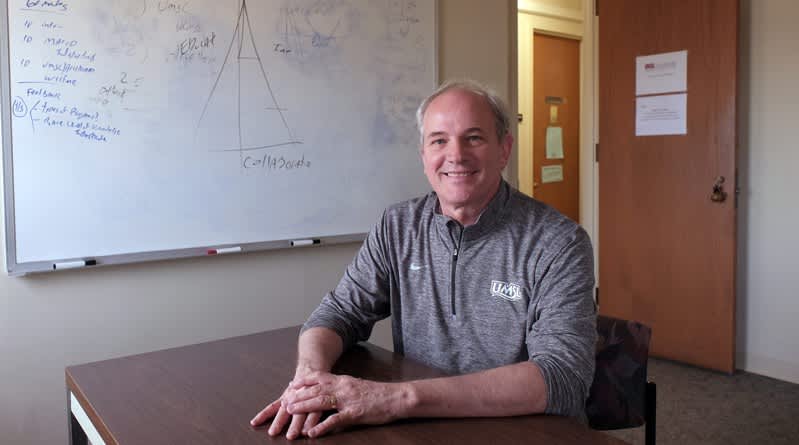By all measures, Dan Lauer had a successful career. The banker turned entrepreneur created the best-selling children’s toy Waterbabies, and after selling 25 million of the realistic dolls, he wanted to give back to his alma mater, the University of Missouri-St. Louis Business School, and empower entrepreneurs in the surrounding community. Amid the pandemic, Lauer and the university launched the Diversity, Equity and Inclusion Accelerator.
A “first-of-its-kind” university-led DEI accelerator, according to the school, Lauer wants participants to be able to create generational wealth.
There are over 30 million small businesses in the U.S., but only a fraction of them survive – 50% fail by their fifth year. For Black founders, the numbers are more daunting: eight out of 10 businesses fail within the first 18 months.
“How do you create generational wealth? How do you fund underrepresented founders?” Lauer asked.
UMSL Accelerate provides $50,000 in non-dilutive capital to founders that make it into the program. Entrepreneurs are paired up with paid interns from the college, along with support from the university and access to mentors, alumni, and subject matter experts.
Launching in the middle of a pandemic was no easy feat, but it was something that had to be done, said Lauer. “In the summer of ’20, there was just a lot of tension in St. Louis about race. And I’d been pitching this well before the pandemic. … The time was right, we had sponsors … I finally got large corporations to invest … and I didn’t want to wait.”
UMSL is located next to Ferguson, Missouri, where residents protested the killing of unarmed Black teen Michael Brown in 2014.
At inception of the accelerator, Lauer received 437 applications for a program that would only take six start-ups.
A group of four faculty members and Lauer himself review each application and whittle the list down to 15 businesses. From there, the applicants are invited to a “Shark Tank”-style pitch competition. Ten judges of faculty, alumni, entrepreneurs and students choose the winners.
According to Lauer, about 50% of the winning businesses are already generating a profit, with the average age of the start-ups around three years.
Only two years into the accelerator, Lauer pointed to a few notable examples of how start-ups accepted into the program have benefited. Flipstik, a company that makes customizable kickstands for smartphones, grew sales by 20,000 units during its time in the program. Founder Akeem Shannon was introduced to a local 3-D printer firm for rapid prototyping and built relationships with big-box distribution stores like Target and Walmart.
Darren Young and Charlene Lopez-Young were able to expand The Fattened Caf, their existing pop-up restaurant and catering business which combines the culinary art of smoked and grilled meats with Filipino cuisine, into the packaged food retail sector. They used their $50,000 to invest in new equipment and established relationships with copackers for The Fattened Caf’s USDA-approved Longganisa sausages, which are now available in local grocery store chain Schnucks.
Students play a vital role in the process, too. Not only do they help select which start-ups make the cut, but students vying for an internship go through a similar process to the entrepreneurs, including a pitch competition. Students and start-ups are paired up at a networking event, something akin to matchmaking. Founders rank their favorite students, and students rank their favorite start-ups, and the pairs formed. Lauer says that most of the students in the program are already working at least one job, sometimes two. They come from households that earn around $40,000 annually. Many of them are the first in their family to attend college.
Lauer is now exploring the idea of another DEI accelerator focused on creative arts, including film, TV and podcasting. He hopes that by leveraging the university’s resources, the accelerator can increase capital investment, workforce development and founders’ wealth. “There’s a lot of changing hearts and minds. And I think the message is, you cannot do this alone,” he said.
SIGN UP: Money 101 is an 8-week learning course to financial freedom, delivered weekly to your inbox. For the Spanish version Dinero 101, click here.
CHECK OUT: My 9 streams of income bring in $10,000 a month: Here is my best advice with Acorns+CNBC
Disclosure: NBCUniversal and Comcast Ventures are investors in Acorns.
